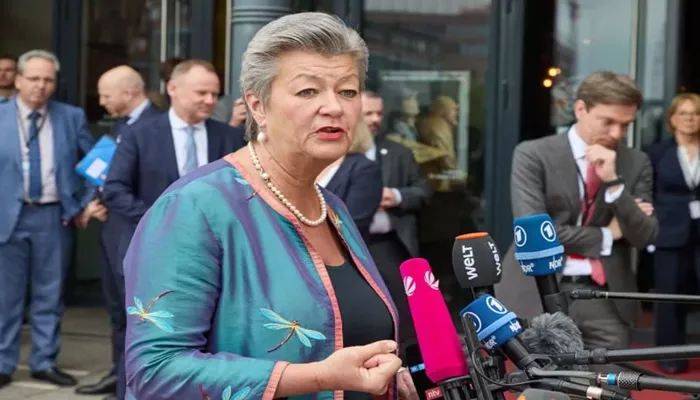The European Commission has sent a second letter to Hungary seeking more details about its National Card scheme, which has recently been expanded to include Russian and Belarusian citizens. This development has raised concerns about potential espionage and the evasion of sanctions.
On Wednesday in Brussels, officials exchanged differing views regarding Hungary’s decision to broaden the National Card program. This scheme simplifies the process for certain nationalities to obtain work permits and allows for family reunification. It is valid for two years, with the possibility of renewal for an additional three years, leading to long-term residency.
Initially, the National Card was available only to citizens from Ukraine and Serbia. However, in July, Hungary expanded the program to include citizens from Bosnia-Herzegovina, Moldova, North Macedonia, Montenegro, as well as Russia and Belarus. This change coincided with Prime Minister Viktor Orbán’s controversial visit to Moscow.
European Commissioner for Home Affairs Ylva Johansson expressed serious concerns about including Russia and Belarus in the program, suggesting it could threaten the security of the entire Schengen Area. During a hearing in the European Parliament, she questioned the rationale behind treating these two “hostile” nations similarly to six EU candidate countries. Johansson noted that the economic benefits of attracting workers from Russia and Belarus seem minimal compared to the potential security risks, especially in light of recent incidents involving sabotage and cyber-attacks.
Following the EU’s suspension of its visa facilitation agreement with Russia in 2022, the number of visas issued to Russian nationals dropped by 88%. Johansson emphasized the need for vigilance regarding security and stated that Hungary’s responses to earlier inquiries were unclear, prompting the second letter for clarification. The Commission is particularly interested in understanding why Hungary believes extending the program to Russian and Belarusian citizens is necessary and why it does not impose stricter security checks on applicants from these countries. Hungary must respond by September 11.
When asked whether Hungary’s actions could lead to its expulsion from the Schengen Area, Johansson stated that such a decision would be significant and unlikely at this time.
In response, Hungary’s Minister for European Affairs, János Bóka, held a press conference to counter the criticisms. He argued that the extension of the National Card is essential to address labor shortages in Hungary and provides a simpler process for employers to recruit foreign workers. Bóka insisted that the program complies with EU law and does not compromise visa requirements.
He dismissed the timing of the announcement, which followed Orbán’s meeting with Putin, as coincidental. Bóka claimed that the National Card system does not pose any security risks to Hungary or the EU. Since the expansion, Hungary has issued only 10 permits to Russians and four to Belarusians, a figure he used to downplay concerns about the program.
Throughout the press conference, Bóka criticized what he termed “political hysteria” from the European Parliament and unnamed member states. He argued that the Commission should resist political pressure and allow intelligence experts to handle national security matters. Fidesz MEPs supporting Bóka described the criticisms of the Hungarian government as unfounded and hypocritical.


